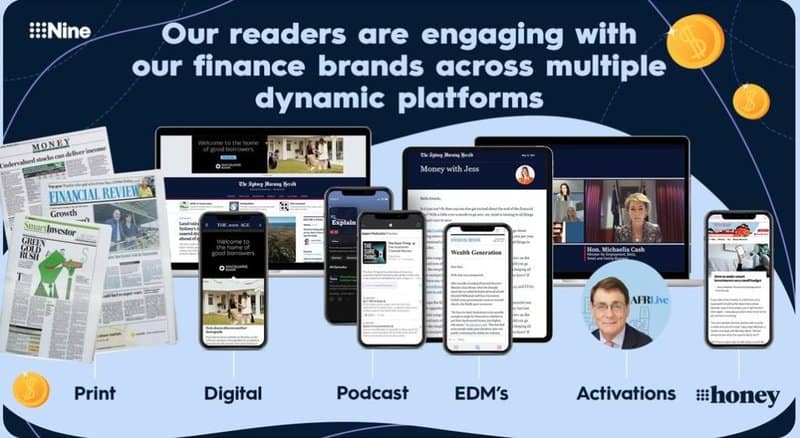As the cost of living crisis deepens amid rising interest rates and an uncertain economic outlook, only 14% of Australians under the age of 40 feel “extremely confident” about their financial skills, new research by Nine and The Lab has revealed.
Unveiled at Nine’s State of the Nation Finance virtual event, the research reveals that despite Australians aged 18-39 consuming more content and information about money and business than ever, fewer people now feel extremely confident than in 2021, when the figure was 20%. But in an era where housing affordability has been at an all-time low, the research uncovers how a new generation of investors is building wealth like never before.
The research examines consumer insights around finance and investing, using a range of methods, including partnering with The Lab in interviews and social listening, and quantitative research via Nine’s cross-platform audience panel, Consumer Pulse, with the aim to help chart a path for brands and marketers.
With the study focusing on entrepreneurially minded Australians aged 18-39, the research found that despite the current turbulent economic times, after more than two years of pandemic-fuelled savings and out-of-reach house prices, this generation is keen to find non-traditional ways to build wealth and is set to invest differently from previous generations. This is having a huge impact on what is expected of brands in this area.
Household wealth is on the rise, with Australia on the cusp of the largest intergenerational wealth transfer in its history as inheritance payouts start to balloon. Over the next 20 years, millennials are predicted to inherit $3.5 trillion – an average of $320,000 each – with the traditional methods of building wealth and sourcing information on investing becoming more complex.
“There is a new wave of wealth on the horizon, and banks and financial service providers need to be prepared,” said Toby Boon, director of strategy & insights, Powered by Nine.
“Our research focuses on four key areas that define how this cohort of younger, entrepreneurially minded Australians consume content and manage their money – investments, debt, aspirations and learning. Each of those areas offers new opportunities for both established and emerging financial services brands.”
Just like other aspects of their lives, younger investors are consuming information from non-traditional sources, including podcasts and social media, with 28% of 18-39s following a “finfluencer”. Podcasts are fast becoming a powerful tool for brands, with 72% listening to business and money podcasting.

“The most effective finfluencers have built their following by breaking down complex financial matters and making people feel more in control of their money,” according to Boon. “Brands can borrow their tactics to simplify personal finance and make investment more accessible. Podcasts, newsletters and social channels all lend themselves to that approach.”
The State of the Nation Finance event, which was be presented by Toby Boon, saw a panel of key industry players sharing their thoughts and insights into the research. It featured Balaji Gopal, head of personal investor, Vanguard Australia; Sarah Adams, group executive strategy, reputation & corporate affairs, AustralianSuper; Brendan Doggett, country manager, Sharesies Australia; Jess Irvine, senior economics writer, The Sydney Morning Herald and The Age; and Aleks Vickovich, wealth editor, The Australian Financial Review.
While there is a deep level of scepticism for the unregulated cryptocurrency market, 92% of younger investors believe it’s important to be ambitious. But they define success by more than financial gain, with 75% prepared to move their money out of financial institutions that aren’t aligned with their values.
“Millennials and Gen Z are more likely to support brands that align with their values,” said Boon. “And that applies to personal finance as much as it does to other aspects of their lives.”
The research highlights the way brands and marketers can best engage with a new era of wealth creation, recognising that young investors are deeply passionate, want easily accessible information, are less risk averse, and want brands to act ethically.
